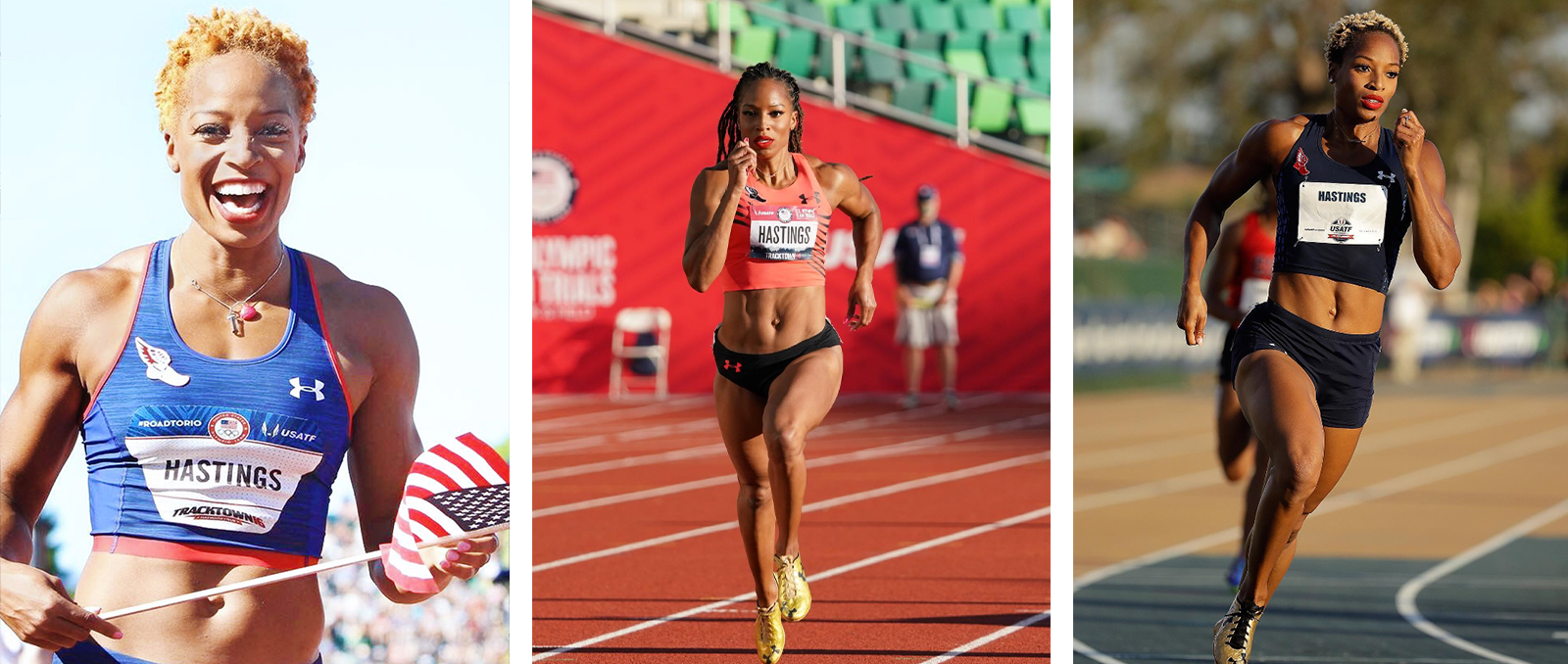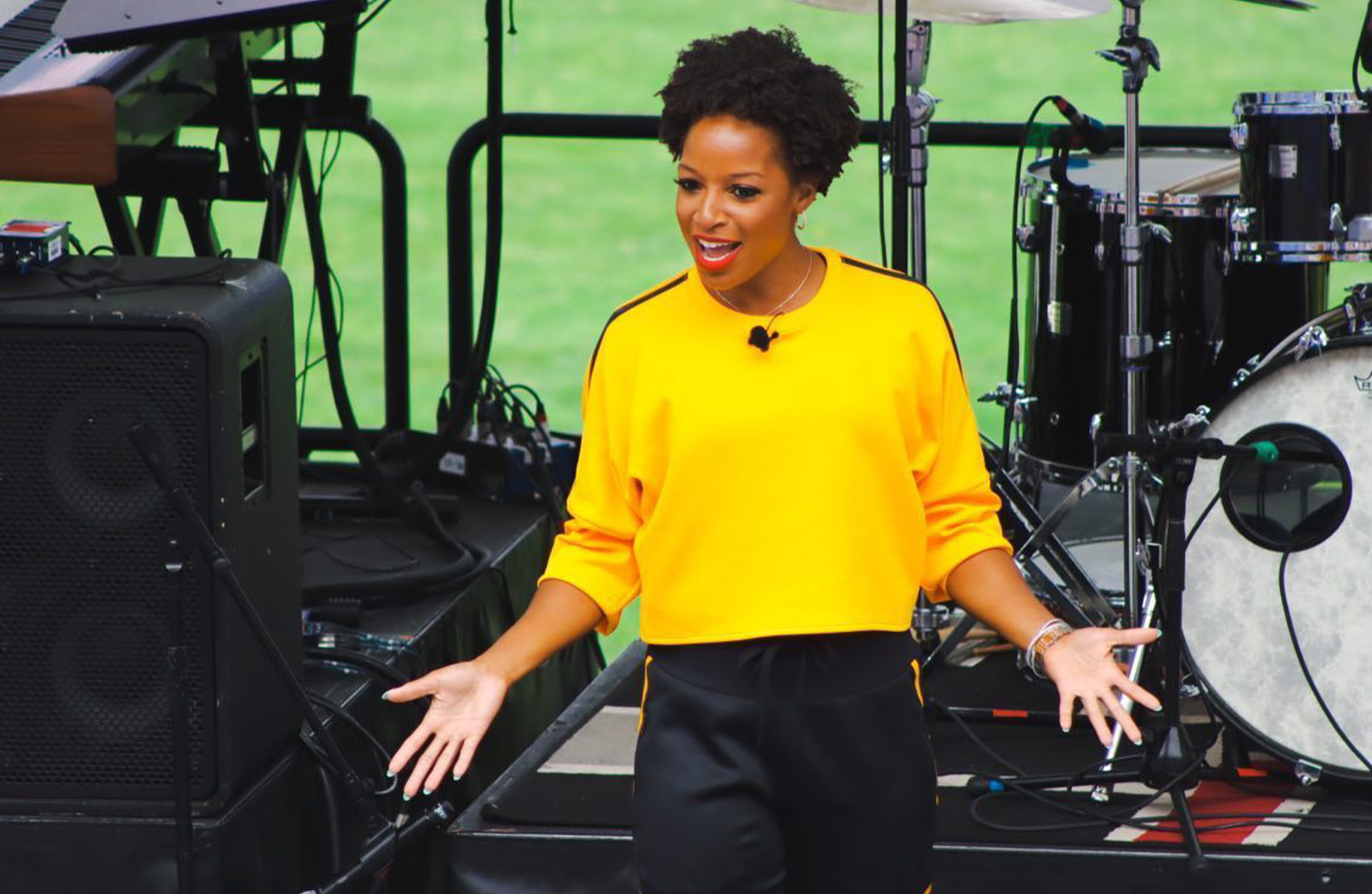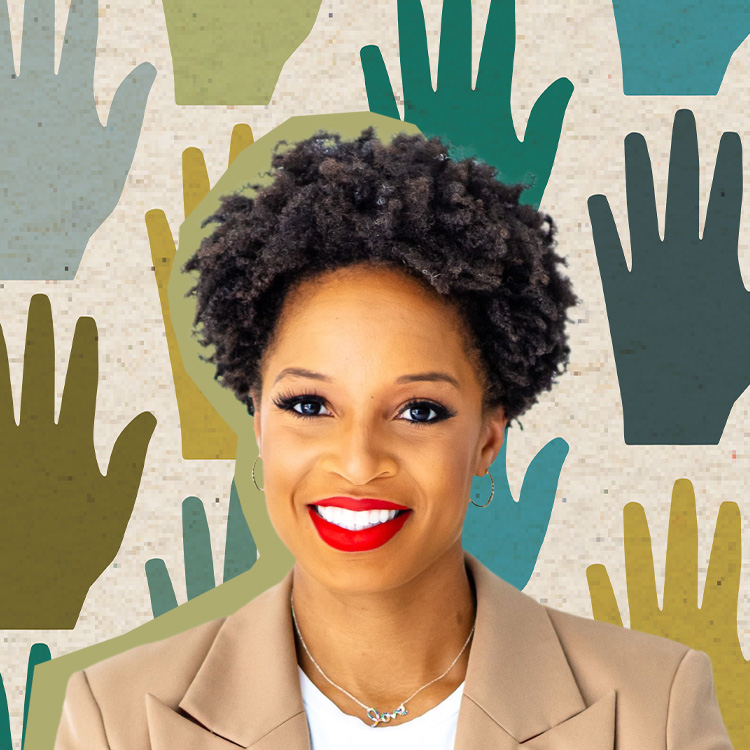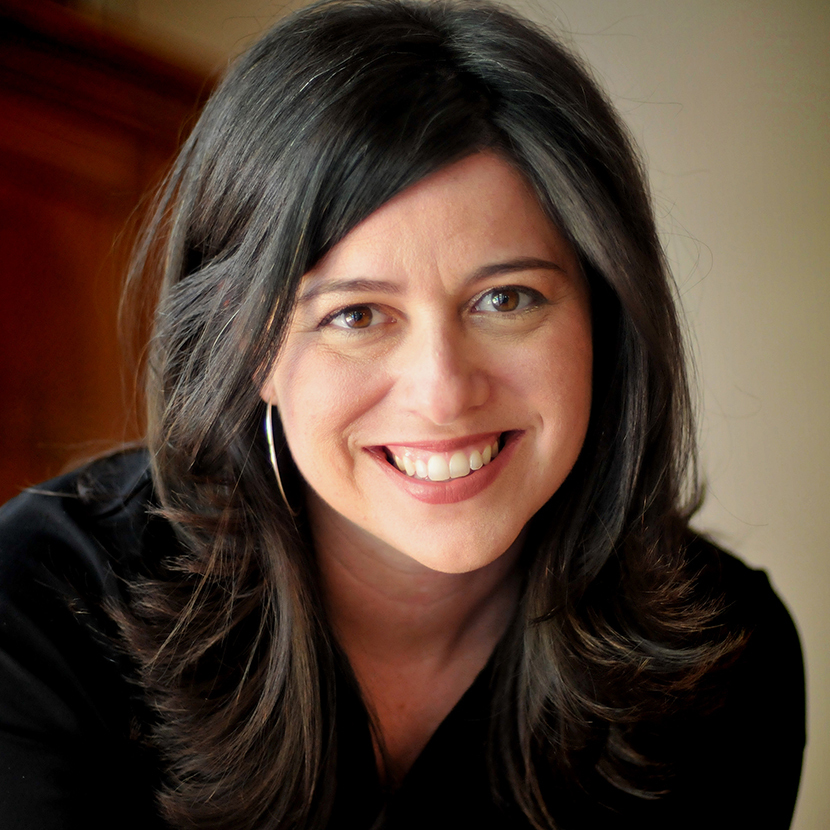Natasha Hastings is known for her accomplishments on the track. An NCAA champ, an 11-time World Championship gold medalist, and a two-time Olympian — who took home gold as part of the U.S. women’s 4×400 relay team in both 2008 and 2016 — Natasha has perfected relay racing’s two main components: the sprint and the baton pass. And as any sprinter knows, it’s not just about speed, it’s about the transitions.
Natasha has made a few of those in life, too. In 2019, she became a mom, giving birth to her son, Liam. Now, five years later, she is making another big shift, from the competitive track to the counseling field. She completed her master’s degree in clinical mental health at the Chicago School and earned her EdS in counselor education from the University of South Carolina, and as she moves into her counseling practice, she shares a bit with us about her journey from the starting blocks to the finish line and the transitions she’s made along the way.
How did your life in sports lead you to run toward getting your advanced degree to become a professional therapist? Tell us about that path and that decision.
I’ve had my experiences with mental professionals throughout my career. When searching for a therapist when I became a single mom, I reflected on those experiences and realized that most of them were with older white men. Never had I worked with someone with a similar life experience.
The only thing worse than failure is not trying at all.

You grew up in Brooklyn a Black woman in high-level competitive sports. Powerful performance cultures, where competition is intense. In a world that celebrates perfection and achievements, how do you embrace imperfections and setbacks as part of your growth process?
This is still a work in progress for me, but I often say that my biggest lessons have come from my failures. Failures and mishaps are opportunities to learn and do it better the next time.
Although the race might be different, the steps along the journey are the same.
What advice would you give to young people who may struggle with vulnerability and the fear of failure in their pursuit of success?
The only thing worse than failure is not trying at all. You’re left wondering, What if? Identify what it is that you actually fear, and then ask yourself how real that outcome really is.

Natasha looked for a Black female therapist when the 2020 Olympic Games were postponed. She couldn’t find one. So she became one. She completed her program and received her advanced degree to become a licensed therapist. Natasha and her son, Liam, in front of the College of Education at the University of South Carolina, where she earned her EdS in counselor education; photography by Josh Cotner (DSP Images).

“Watching Liam grow up has been nothing short of amazing,” Natasha says; photography courtesy of the Under Armour Mother’s Day Campaign.
What role does self-compassion play in your journey as an athlete and as a student and a mom? How do you practice self-compassion during both triumphs and setbacks?
I honor the moments that I need to give myself what I need — whether that is even having someone watch my son for a couple hours so that I can breathe. I honor that I am not perfect and apologize to both myself and my son when I recognize I am falling short.
You are a powerful woman who has accomplished so much already. You know what it feels like to live in your power. What does that look like for you today? What’s next?
Today, being in between careers frightens me. Fear of the unknown can be crippling. I remember when I was in labor, I started to visualize myself on the line in Rio [in the 2016 Olympics]. I channeled that focus and breath work to get through each contraction. As I approach this transition, I remind myself that I have done hard things before. I have overcome failure. Although the race might be different, the steps along the journey are the same.


